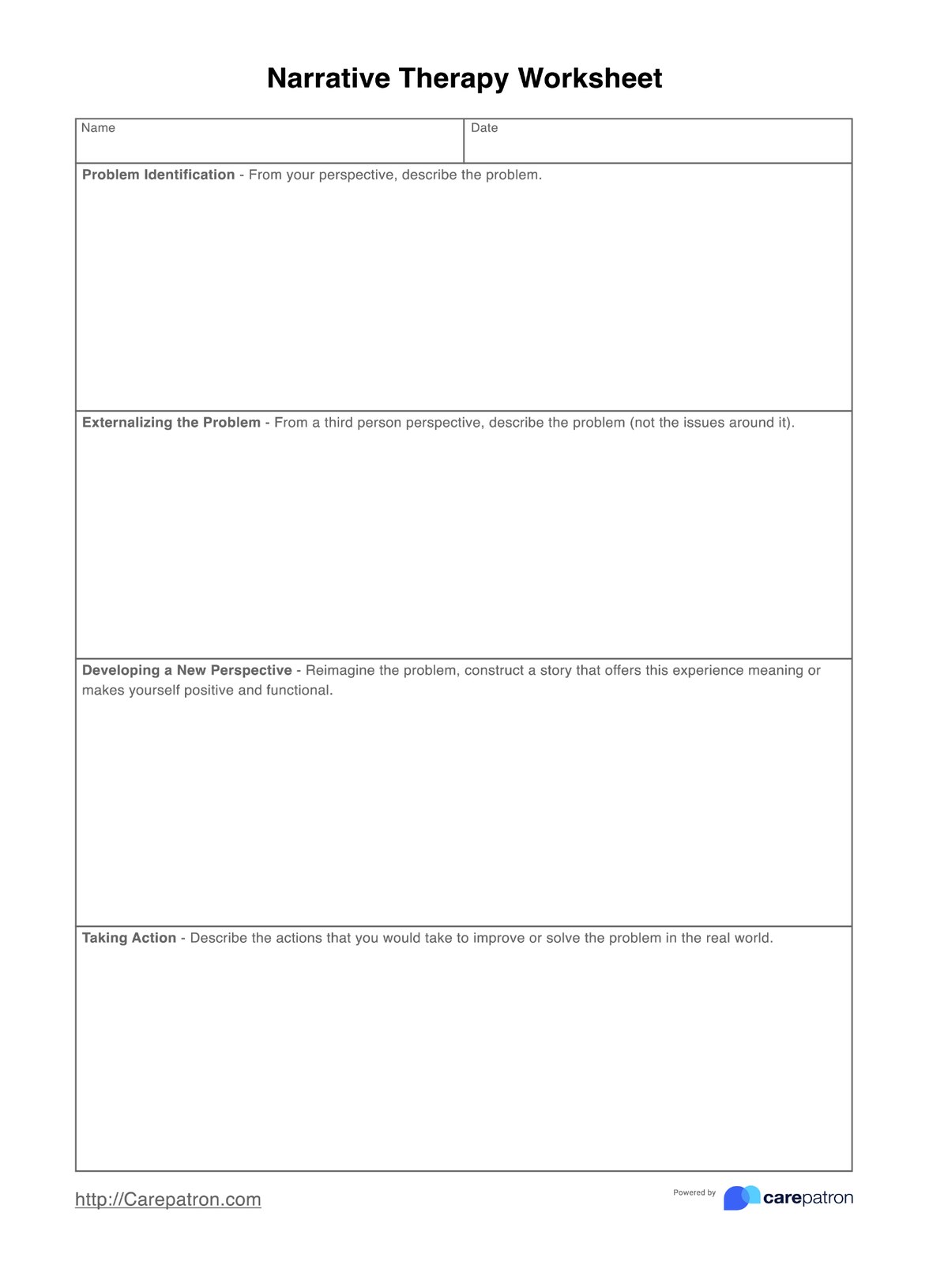A narrative therapy worksheet is used to help individuals explore their life stories and identify patterns in their thoughts, feelings, and behaviors. It can be used as a tool for self-reflection, healing, and establishing new life strategies. Narrative therapy worksheets are most often used by mental health professionals, such as therapists or counselors who specialize in the practice of Narrative Therapy.

Narrative Therapy Worksheet
Help your clients craft clear narratives of their problems so they can develop enough distance to examine and work through them.
Narrative Therapy Worksheet Template
Commonly asked questions
A Narrative Therapy Worksheet is typically completed by a mental health professional and the client they are working with. It is used to help clients identify and build upon their personal strengths and explore how certain aspects of their life story have shaped them. They may also be used by individuals on their own as part of a self-help process.
An ACT (Acceptance and Commitment Therapy) worksheet focuses on helping a person to become more mindful of their thoughts, feelings, and behaviors. It encourages people to take action in line with their values, even if it is uncomfortable or difficult. This type of therapy helps individuals accept and commit to the present moment without reacting or judging themselves for how they feel. A narrative therapy worksheet is designed to help individuals explore their stories, uncover meaning from events that have happened in the past, and look at current situations differently. The goal is to create new interpretations of old stories so that people can gain insight into how the past affects them today, helping people build healthier relationships with themselves and others by rewriting their narrative and creating a more positive outlook on life.
EHR and practice management software
Get started for free
*No credit card required
Free
$0/usd
Unlimited clients
Telehealth
1GB of storage
Client portal text
Automated billing and online payments











